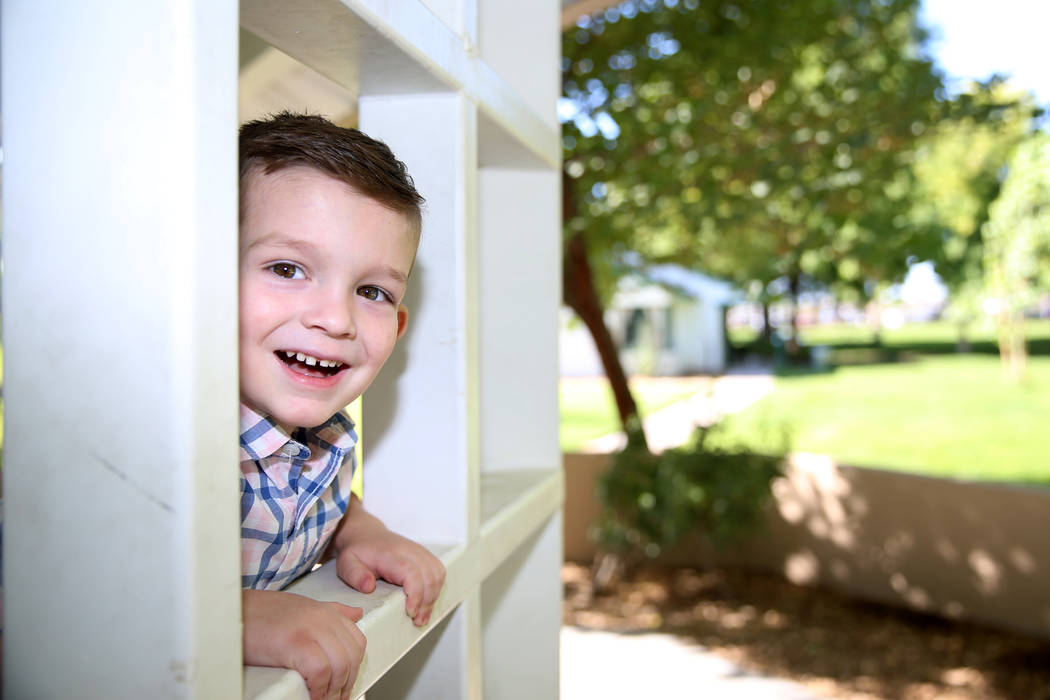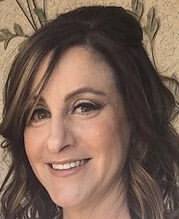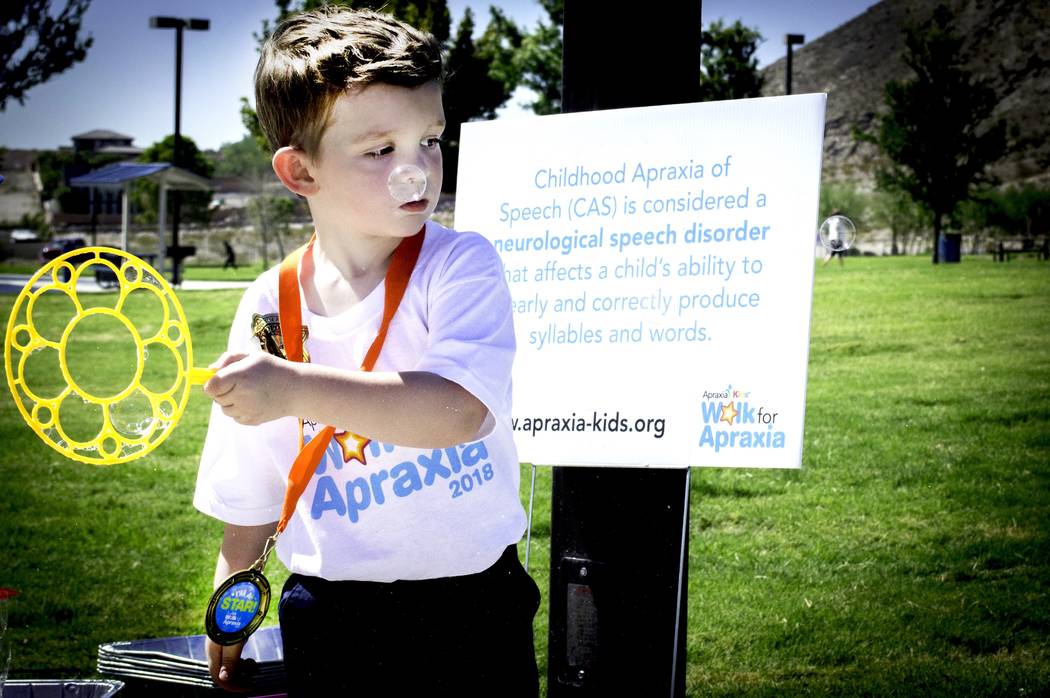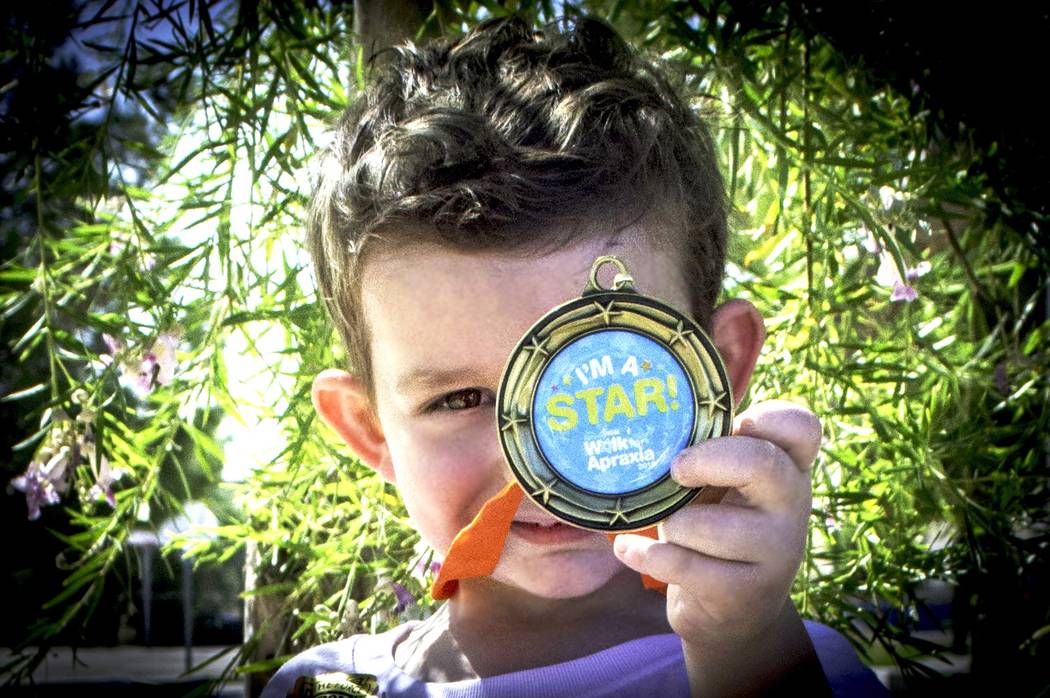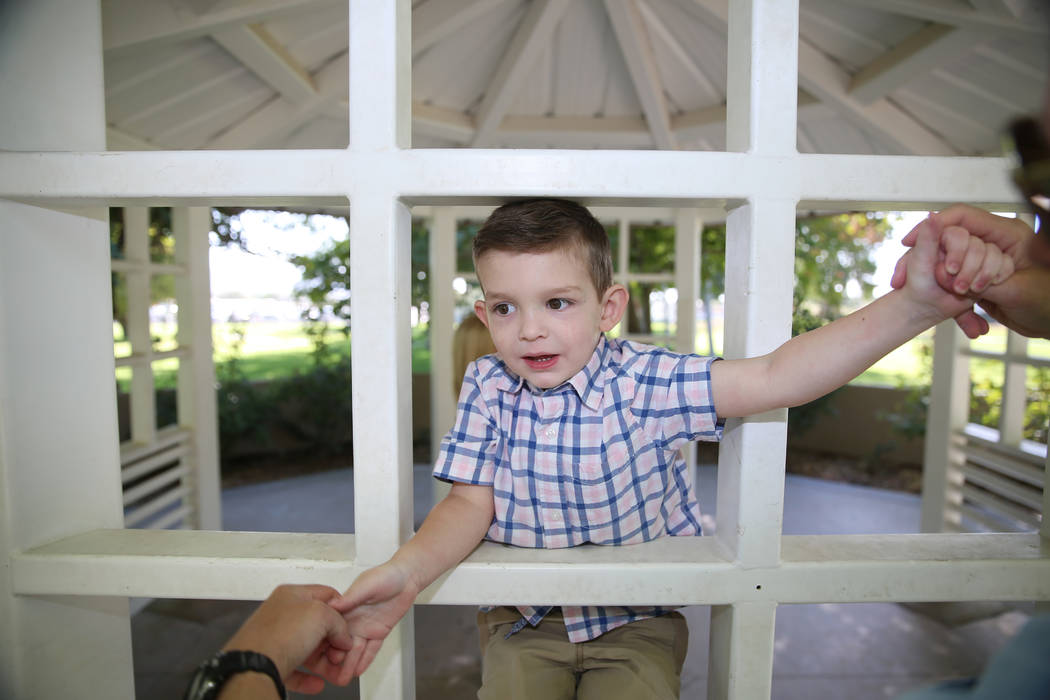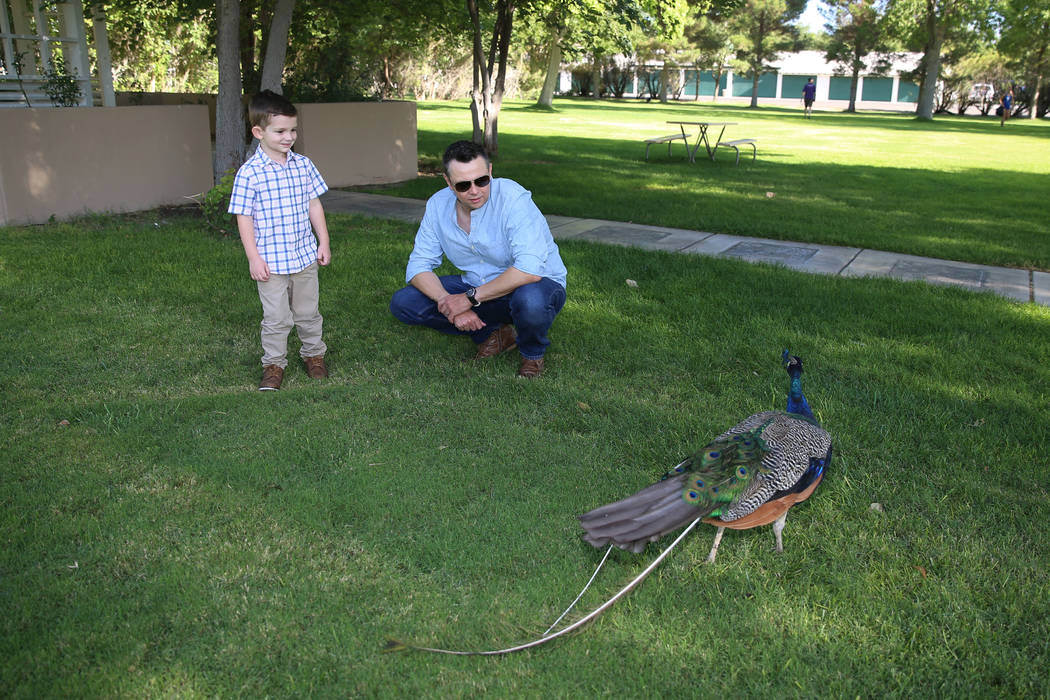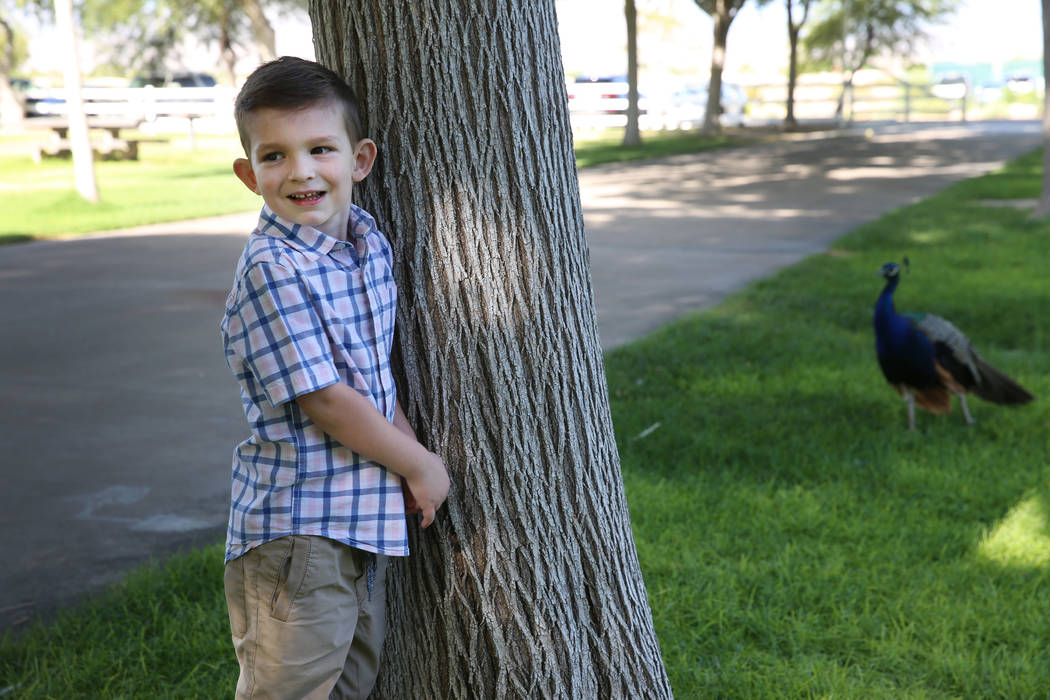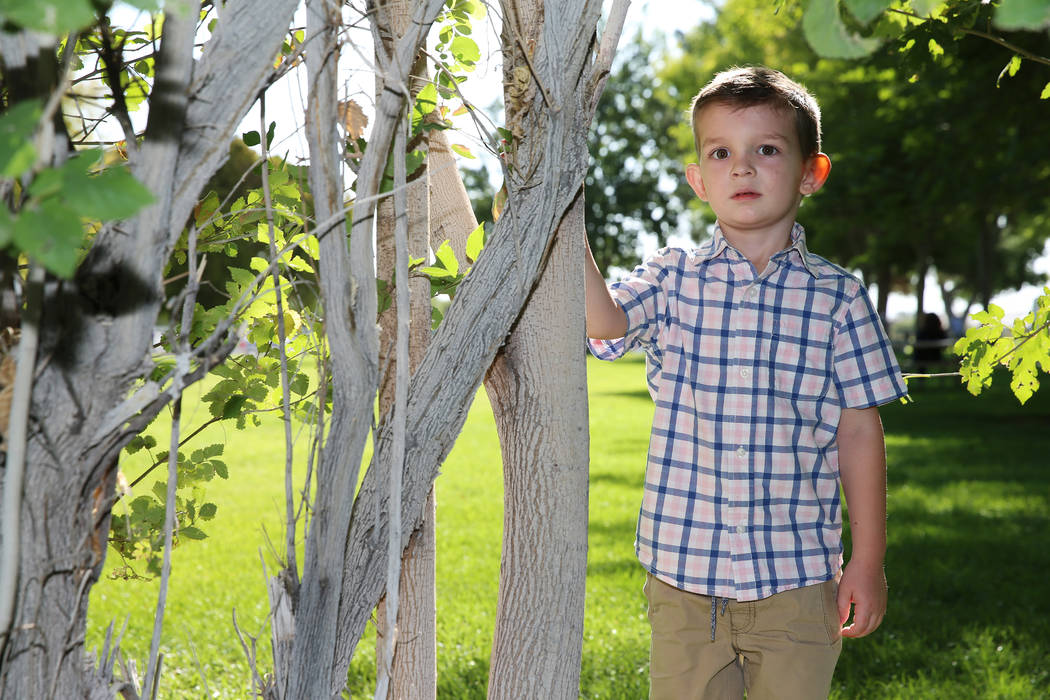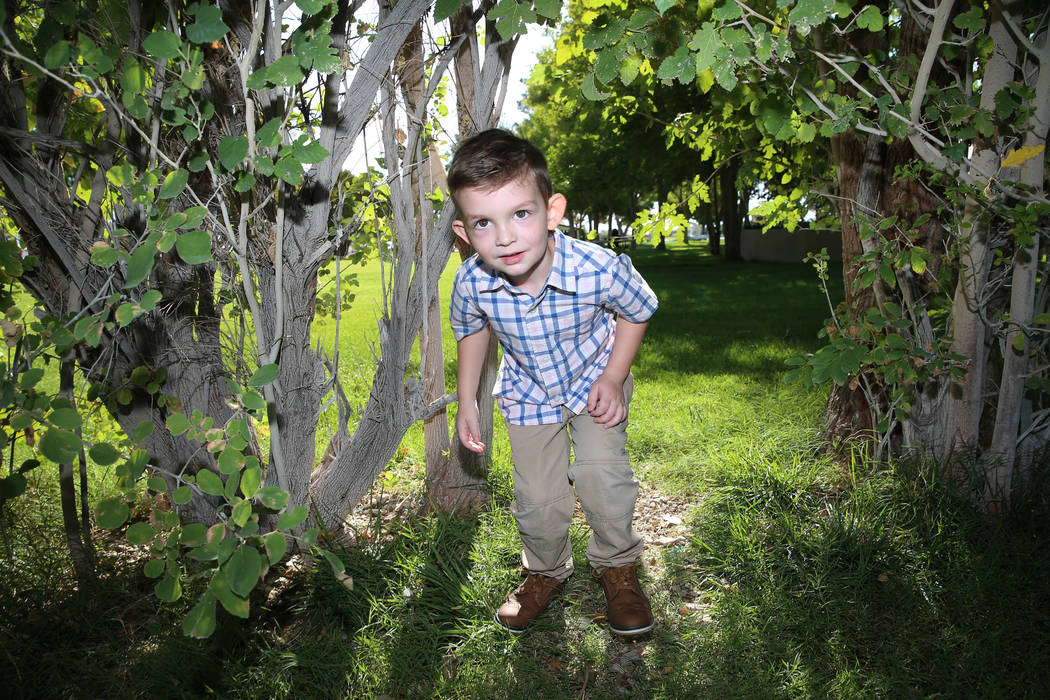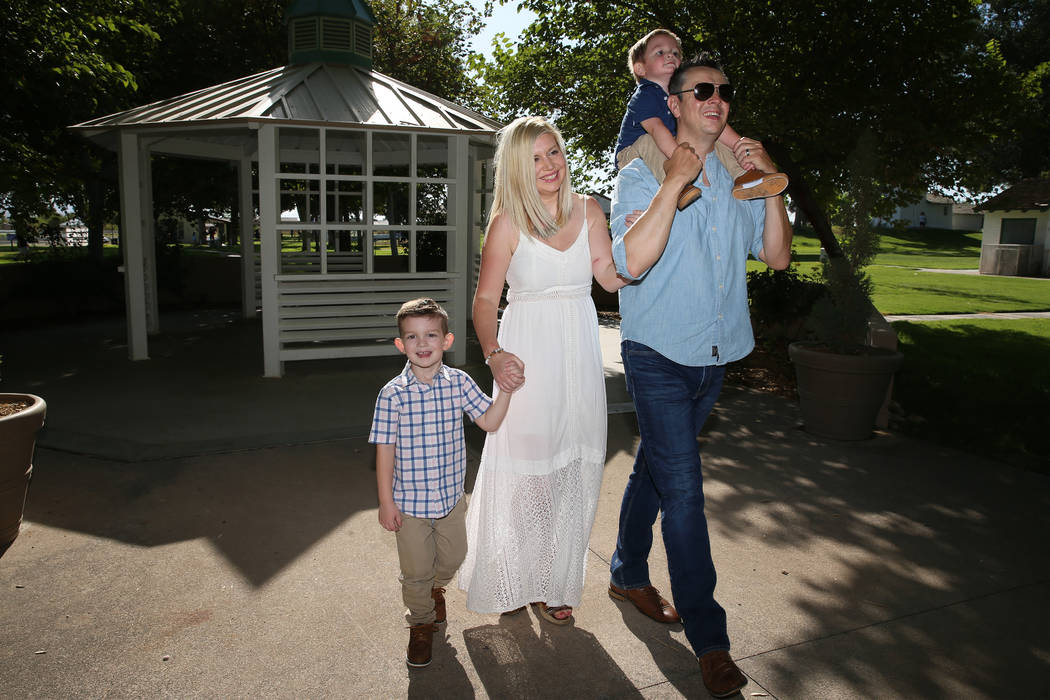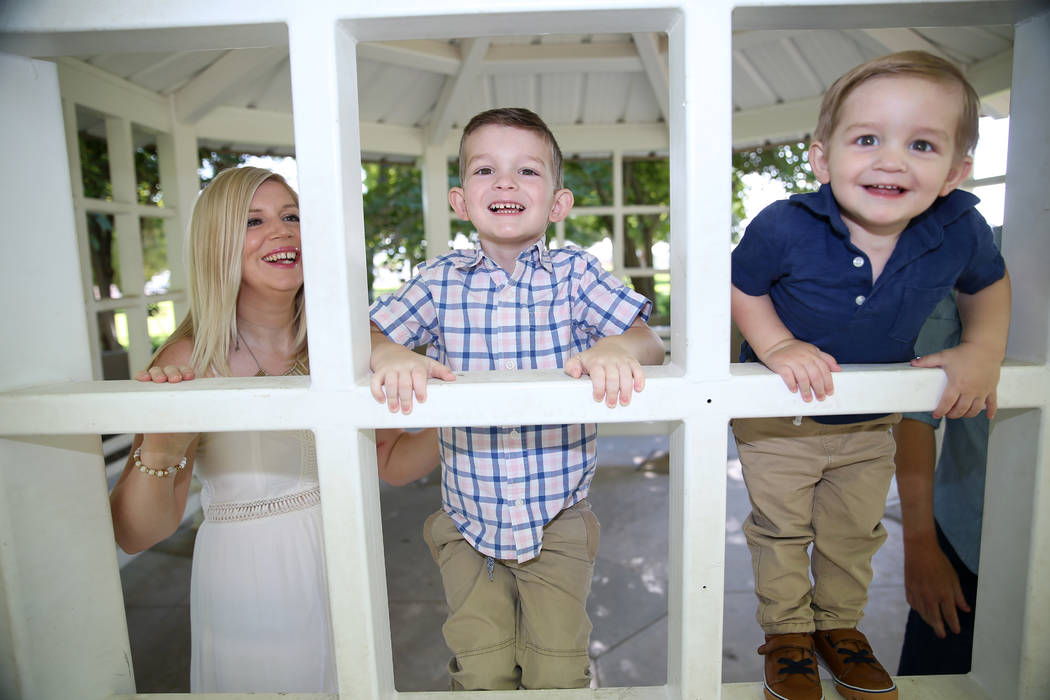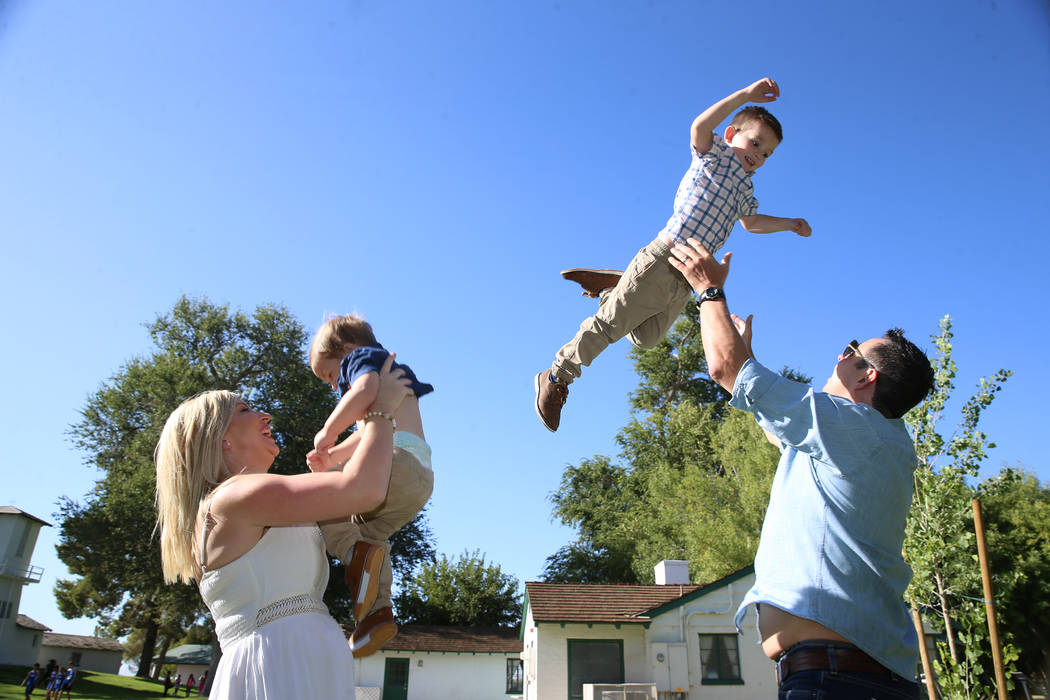Las Vegas-area childhood apraxia sufferers have challenges, hope
Nicole and Perry Rogers knew something wasn’t right when their infant son, Ryan, didn’t look at them when they changed his diaper.
“We kind of discovered there was something going on probably just a few months after he was born,” Perry said in a phone interview Aug. 22.
The Las Vegas parents thought Ryan — now 7 — might have autism, but he didn’t seem to have any of the other characteristics of the condition.
They put Ryan into speech therapy when he was 18 months old. At age 2, he was diagnosed with a rare speech disorder called childhood apraxia of speech.
CAS “is a motor speech disorder that makes it difficult for children to speak,” according to an Aug. 19 statement from Apraxia Kids. “Children with the diagnosis of apraxia of speech generally have a good understanding of language and know what they want to say. However, they have difficulty learning or carrying out the complex sequenced movements that are necessary for intelligible speech.”
Every child’s apraxia is different, but hallmark signs include babbling very little during infancy or distorting vowels.
It’s a rare condition. An estimated 1 or 2 children per 1,000 have CAS, according to the American Speech-Language-Hearing Association.
Nevada Walk for Apraxia
The Rogers family is among dozens of participants signed up for the fourth annual Nevada Walk for Apraxia, slated for Saturday at the Springs Preserve.
As of Thursday, 64 participants and nine teams had registered. They’ve raised $3,260 toward a $14,000 goal. Participants raise money via donations.
In addition to the approximately 1-mile walk, the event includes children’s activities and characters to interact with, including Woody and Buzz from “Toy Story.”
“It’s really more about bringing families together to support each other,” said Alyssa Hampson, a Las Vegas speech language pathologist who’s organizing the event.
Proceeds will benefit Apraxia Kids, a Pittsburgh-based nonprofit formed in 2000 that provides education, community outreach, research and advocacy about the condition.
Las Vegas 4-year-old Logan Bayley was diagnosed with CAS two years ago.
“Very few people know what apraxia is,” said his mother, Charlie Bayley, including pediatricians and teachers.
It’s scary for parents because they don’t have many people to talk with about it, she said, adding that the Nevada apraxia walk and online support groups help.
Because CAS isn’t well-known, “you think you’re alone in it,” Nicole Rogers said, but if you take the right steps, “there’s a huge community to support you.”
Her family attended an apraxia conference four years ago in San Diego. They got involved with the local walk three years ago. “This Apraxia walk is really how we’ve connected with other families out there,” she said.
‘He wasn’t talking quite right’
After two years of intensive speech, physical and occupational therapy, Logan Bayley’s CAS is considered resolved.
His parents are celebrating the victories: Logan being able to say “I love you” back to them, hearing him sing along with a song, and hearing from his preschool about how he talked about fire trucks during show-and-tell.
The Bayley family is from the United Kingdom, and it’s their third year stationed in Las Vegas for father Steve’s job in the British military. He’ll receive a new assignment in a year.
As a baby, Logan had signs of muscle weakness in his face, Charlie said, and couldn’t breastfeed. He had trouble with bottle-feeding, too, so he was cup-fed.
As Logan got older, he had muscle weakness in his legs and neck, too. And “just before we posted to Las Vegas, I knew he wasn’t talking quite right,” Charlie said.
Logan’s face was “extremely neutral” in expression. He also wasn’t making typical toddler noises and struggled to swallow food.
After thousands of attempts, Charlie finally got Logan to say “Mum.”
Charlie kept following up with pediatricians, trying to get answers, and one thought Logan might have autism. But “it just didn’t ring true to me,” said Charlie, who was a teacher in the U.K.
Logan wasn’t talking but had good body language, Charlie said, adding, “He desperately wanted to interact with people.”
Once they started him in speech therapy with Hampson, “we just felt like we were home,” Charlie said.
In addition to speech therapy, Logan had occupational and physical therapy to work on his fine motor skills.
The experience of watching her son go through therapy is a reminder of “how much we take for granted,” Charlie said. For Logan, it was a long process just to make a sound.
“A lot of people don’t realize they need intensive therapy,” she said.
And for many families, they’re worried about health insurance, the cost of treatment and how to fit appointments around work schedules, Charlie said. “It takes its toll on a family.”
But getting proper treatment is crucial.
“With child apraxia of speech, they can’t grow out of it,” Charlie said. “They need that intervention to progress.”
A passion for helping
Hampson has a private practice in which she specializes in working with children who have CAS.
“This is a passion of mine as identification and intensive treatment are needed,” she wrote in an Aug. 20 email to the Las Vegas Review-Journal. “Many children are misdiagnosed and don’t receive the appropriate treatment.”
Hampson, who has been a speech language pathologist for nearly 30 years, said in a phone interview that she became interested in CAS after working with a boy who couldn’t speak.
Some thought he had autism, but he was eventually diagnosed with CAS.
Now, the boy is in college.
“You’d never know he had a speech problem at all,” Hampson said.
Some children with CAS who receive intensive therapy see their condition “resolved,” meaning their symptoms have sufficiently been addressed.
But for some, there can be residual effects. And children with apraxia are at risk for challenges such as reading difficulties and dyslexia, Hampson said.
She typically sees each child three or four times a week for speech therapy. Some children also require physical or occupational therapy, or help managing their behaviors because they become frustrated when they can’t communicate.
Making progress
Ryan Rogers goes to speech therapy three days a week and occupational therapy twice a week, and no longer needs physical therapy regularly.
Through therapy, the brain finds ways to rewire itself and perform in a more normal range, his dad, Perry, said, adding, “We’ve seen that for Ryan.”
Ryan is making greater progress, Perry said, and is catching up.
CAS isn’t a cognitive disorder, and Ryan’s academics are at grade level, Perry said.
“This is the ability to articulate what he knows,” he said.
Charlie said her family is fortunate they can afford therapy for Logan, but it bothers her to witness families who can’t.
The September fundraising walk at the Springs Preserve, she said, helps ensure CAS families in need receive support so their child can progress.
Contact Julie Wootton-Greener at jgreener@reviewjournal.com or 702-387-2921. Follow @julieswootton on Twitter.
If you go
When: Registration is at 9 a.m. and the walk begins at 10 a.m. Saturday
Where:Springs Preserve, 333 S. Valley View Blvd.
Cost: $20 for adults, $15 for students (ages 18 and older), $10 for children (younger than 18) and free for children who have apraxia
To sign up or donate: community.apraxia-kids.org/nevadawalk



